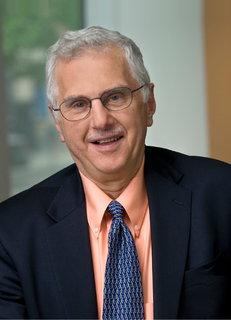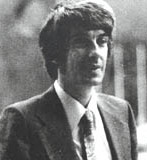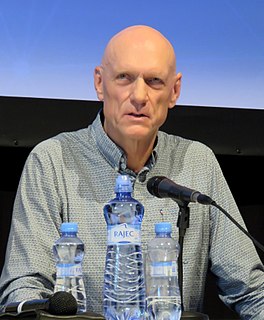A Quote by Rupert Sheldrake
In no other field of scientific endeavor do otherwise intelligent people feel free to make public claims based on prejudice and ignorance. Yet in relation to psychic phenomena, committed materialists feel free to disregard the evidence and behave irrationally and unscientifically, while claiming to speak in the name of science and reason. They abuse the authority of science and bring rationalism into disrepute.
Related Quotes
Trouble arises when either science or religion claims universal jurisdiction, when either religious dogma or scientific dogma claims to be infallible. Religious creationists and scientific materialists are equally dogmatic and insensitive. By their arrogance they bring both science and religion into disrepute.
If I have put the case of science at all correctly, the reader will have recognised that modern science does much more than demand that it shall be left in undisturbed possession of what the theologian and metaphysician please to term its 'legitimate field'. It claims that the whole range of phenomena, mental as well as physical-the entire universe-is its field. It asserts that the scientific method is the sole gateway to the whole region of knowledge.
In evolution, as in all areas of science, our knowledge is incomplete. But the entire success of the scientific enterprise has depended on an insistence that these gaps be filled by natural explanations, logically derived from confirmable evidence. Because "intelligent design" theories are based on supernatural explanations, they can have nothing to do with science.
Evolution as described by Charles Darwin is an scientific theory, abundantly reconfirmed, explaining physical phenomena by physical causes. Intelligent Design is a faith-based initiative in rhetorical argument. Should we teach I.D. in America's public schools? Yes, let's do - not as science, but alongside other spiritual beliefs, such as Islam, Zoroastrianism and the Hindu Idea that Earth rests on Chukwa, the giant turtle.
By the worldly standards of public life, all scholars in their work are of course oddly virtuous. They do not make wild claims, they do not cheat, they do not try to persuade at any cost, they appeal neither to prejudice nor to authority, they are often frank about their ignorance, their disputes are fairly decorous, they do not confuse what is being argued with race, politics, sex or age, they listen patiently to the young and to the old who both know everything. These are the general virtues of scholarship, and they are peculiarly the virtues of science.
Skeptics, who flatly deny the existence of any unexplained phenomenon in the name of 'rationalism,' are among the primary contributors to the rejection of science by the public. People are not stupid and they know very well when they have seen something out of the ordinary. When a so-called expert tells them the object must have been the moon or a mirage, he is really teaching the public that science is impotent or unwilling to pursue the study of the unknown.
The values of science and the values of democracy are concordant, in many cases indistinguishable. Science and democracy began - in their civilized incarnations - in the same time and place, Greece in the seventh and sixth centuries B.C. . . . Science thrives on, indeed requires, the free exchange of ideas; its values are antithetical to secrecy. Science holds to no special vantage points or privileged positions. Both science and democracy encourage unconventional opinions and vigorous debate. Both demand adequate reason, coherent argument, rigorous standards of evidence and honesty.
Climate change is so big that people who study it.. and many do.. need to speak to it. They must present scientific papers, they must appear in public, they must speak to the media and we must hear their voices. In order to get policy right, policymakers.. governments.. need to make decisions based on sound science.
The invocation of science, of its ground rules, of the exclusive validity of the methods that science has now completely become, now constitutes a surveillance authority punishing free, uncoddled, undisciplined thought and tolerating nothing of mental activity other than what has been methodologically sanctioned. Science and scholarship, the medium of autonomy, has degenerated into an instrument of heteronomy.
Lest we forget, the birth of modern physics and cosmology was achieved by Galileo, Kepler and Newton breaking free not from the close confining prison of faith (all three were believing Christians, of one sort or another) but from the enormous burden of the millennial authority of Aristotelian science. The scientific revolution of the sixteenth and seventeenth centuries was not a revival of Hellenistic science but its final defeat.
The problem with intelligent-design theory, is not that it is false but that it is not falsifiable. Not being susceptible to contradicting evidence, it is not a testable hypothesis. Hence it is not a scientific but a creedal tenet - a matter of faith, unsuited to a public school's science curriculum.
There must be no barriers to freedom of inquiry... There is no place for dogma in science. The scientist is free, and must be free to ask any question, to doubt any assertion, to seek for any evidence, to correct any errors. Our political life is also predicated on openness. We know that the only way to avoid error is to detect it and that the only way to detect it is to be free to inquire. And we know that as long as men are free to ask what they must, free to say what they think, free to think what they will, freedom can never be lost, and science can never regress.
When people think science and cooking, they have no idea that it's not correctly expressed. We're actually applying the scientific method. People think chemistry and physics are science, but the scientific method is something else.... It's the science that the world of cooking generates: science of butter; science of the croissant.



































